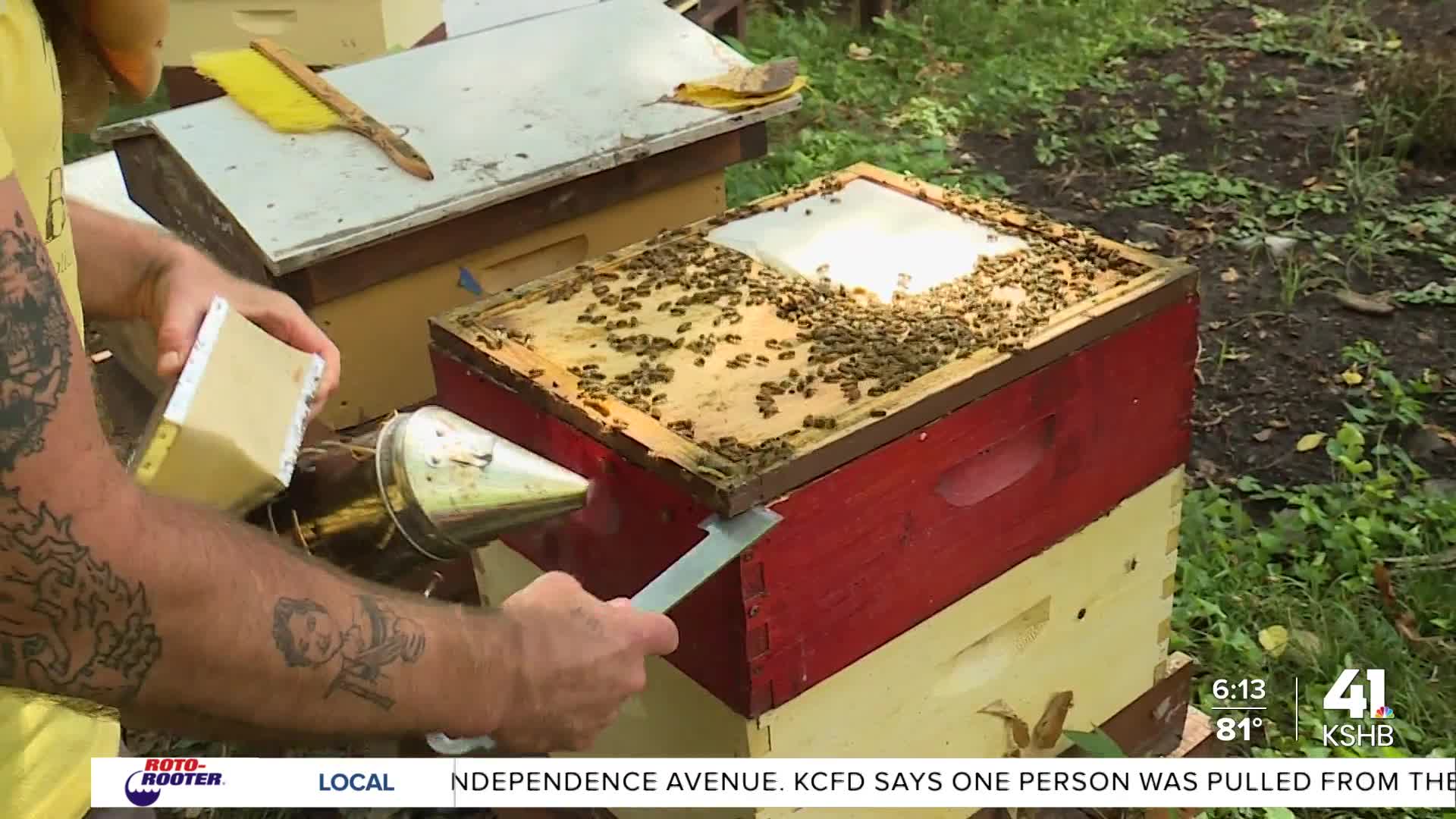KSHB 41 anchor/reporter JuYeon Kim covers agricultural issues and the fentanyl crisis. Share your story idea with JuYeon.
A Kansas City-area beekeeper is doing his part to save and strengthen honeybee colonies in the metro.
David Friesen started the non-profit organization Bee KC in 2021. Since then, it has been his mission to protect one of the biggest pollinators in our ecosystem: honeybees.
“2024 was the worst year for bee death in recorded U.S. history,” Friesen said. “A lot of beekeepers lost like 80 percent, some even 100 percent, of their hives. People had to quit. It was a real disaster. So what we’re hoping to do is kind of bring back a healthy population of bees and spread better practices.”
Friesen fell in love with honeybees for the first time when he was swarmed by them without harm on his family’s bee farm. Fast forward to four years ago, he wanted to find a way to professionally handle bees in a way that truly made a difference to the city and community.

Friesen says our ecosystem is currently in the middle of an insect apocalypse. Populations are declining among almost all species due to diseases, pesticides, climate change and poor nutrition.
Late summer and fall are an especially crucial time for honeybee health, as the honey is harvested and the bees gather enough food for the winter, making sure they have enough young and are healthy for next spring.
“With beekeeping, you work a season or two ahead. And it’s never the case that you get into Winter and the cold just kills them. It’s something you did in summer that is now showing itself in winter,” Friesen said.
Friesen works with community partners, including urban farms, community gardens, restaurants and schools to expand his reach. He plants beehives directly on their properties and shares the honey harvest for enjoyment and conservation fundraising purposes.
Pendleton Heights Community Orchard, run by Kansas City Parks and Recreation, is one of them. It is located on the corner of Lexington Avenue and Montgall Avenue.

“It’s a park essentially that feeds our neighbors, and that’s our intention is to help, you know, make our community a little more resilient and food secure,” said one of the orchard’s stewards, Whitney Barnardo.
The Giving Grove and Kansas City University worked together to plant the fruit trees in 2016, and Friesen’s beehives were added in 2022.
“People literally can help get the frames and do the spin, and then you get to, you know, go buy your jar and serve yourself your honey, which is really exciting cause you get to see the process,” Barnardo said.

Bee pollination is great for the trees, and the fruits they bear are great for neighbors. Barnardo describes it as a win, win, win.
“It’s hard to measure that kind of impact, but conservation has always been a huge part of it,” Barnardo said. “We sell some of the honey to also raise funds here to kind of keep that going, and we pay Bee KC what we can to help educate the neighborhood.”
Friesen says without bees and other pollinators, America would lose 30 to 80 percent of its food crops. With a risk that big, there is no effort too small.
“Just re-wild tiny little pockets to make insect oases, put some more beehives around, and really just transform the greenery in the city,” Friesen said. “They are just such an important part of the whole cycle of nature around us, whether it’s in the country, in the suburbs, or here in the city.”
—



